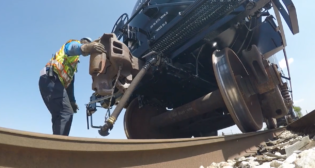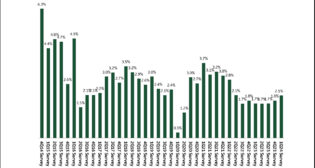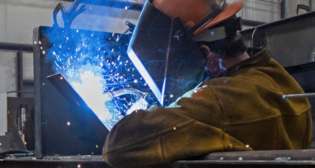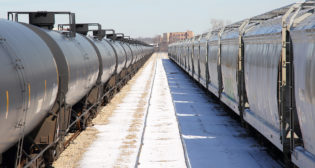
Analysis: OPEC move tugs at railcar expectations
Written by Douglas John BowenKeyBanc Capital Markets Inc. issued best- and worst-case scenarios for the freight railcar production market Thursday, Dec. 4, 2014, "[g]iven the dramatic share price volatility in the railcar space following OPEC's decision last week."
KeyBanc analyst Steven Barger, in a note to clients, said the firm is “maintaining our BUY ratings, but we are lowering our price targets for The Greenbrier Companies, Inc. (GBX-NYSE) to $60 from $76 and for Trinity Industries, Inc. (TRN-NYSE) to $45 from $55. “
In the near term, we expect share prices in the group will continue to be driven by oil price dynamics as investors focus on shale play production rates and adjust expectations about when the cycle will end. We think that focus on a single, dominant macro factor (despite broadening demand trends for other railcar types) means that the group has shifted from being “investable” based on existing positive fundamental factors to being dominated by a trading mindset, which is the driving factor for our price target reduction,” Barger said.
KeyBanc’s analysis included a “Bull [Market] Case,” where, among other factors, “GBX and TRN already have record, multi-billion dollar backlogs that should result in substantial operating cash flow in the next few years that will likely be deployed to benefit shareholders. In our view, the current production visibility and potential for incremental orders provides a multiyear “window” in which oil prices could stabilize or rise as supply and demand find balance.”
In KeyBanc’s “Bear [Market} Case, by contrast, “The recent drop in oil prices could be persistent, which, in the near term, could slow the rate of shale oil production and could eventually result in production declines. If true, it could imply orders for tank cars and small cube covered hoppers have peaked, and that orders for other freight cars will not be strong enough to support a positive book:bill. Historically, shares of railcar OEMs are more positively correlated with backlog than with orders and deliveries, so a shrinking backlog could result in a persistent headwind that we think is already being reflected in share prices.”



